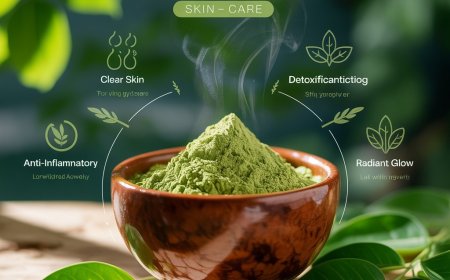Fertility Boosting Foods Recommended by the Best Gynecologist in Delhi
Trying to conceive can be a deeply emotional and physically demanding journey. For many couples, small changes in daily habits—especially diet—can have a big impact on reproductive health. One of the first and most effective ways to improve fertility is to focus on the right food.
Nutrition plays a key role in regulating hormones, maintaining healthy ovulation, improving sperm quality, and supporting a healthy pregnancy. According to the best gynecologist in Delhi, adopting a fertility-friendly diet is often the first step in planning for conception.
In this blog, well explore the top foods that can help naturally boost fertility in both women and men, and how incorporating them into your daily meals can make a real difference.
Why Diet Matters When Youre Trying to Conceive
The connection between nutrition and fertility is scientifically backed. Eating the right foods can:
-
Regulate menstrual cycles
-
Support egg and sperm health
-
Improve uterine lining quality
-
Balance insulin and hormone levels
-
Reduce inflammation and oxidative stress
Your gynecologist may suggest lifestyle and dietary changes before recommending medical treatments like IUI or IVFespecially if you're otherwise healthy.
Fertility-Boosting Foods for Women
Lets break down which foods specifically support a womans reproductive system.
1. Leafy Greens (Spinach, Kale, Methi)
Packed with folate, iron, and calcium, these greens support ovulation, hormonal balance, and the development of a healthy uterus lining.
-
Why it works: Folate is vital before and during pregnancy to prevent birth defects. It also improves egg quality.
2. Whole Grains (Brown Rice, Oats, Quinoa)
Refined carbs can cause blood sugar spikes that harm ovulation. Whole grains are slow-digesting and keep insulin levels stable.
-
Why it works: Balanced insulin levels support regular periods and healthy egg development, especially in women with PCOS.
3. Berries (Blueberries, Strawberries, Amla)
Rich in antioxidants and vitamin C, berries help protect reproductive cells from damage caused by toxins or stress.
-
Why it works: Antioxidants neutralize free radicals, which can harm eggs and affect fertility.
4. Nuts and Seeds (Almonds, Flaxseeds, Pumpkin Seeds)
These are full of healthy fats, zinc, and selenium that support hormone production and reproductive function.
-
Why it works: Good fats help maintain estrogen levels and improve cervical mucus quality.
5. Dairy (Full-fat milk, Paneer, Curd)
Studies suggest that full-fat dairy may help promote fertility more than low-fat versions.
-
Why it works: Full-fat dairy can improve ovulatory function and reduce the risk of ovulation disorders.
6. Lentils and Beans (Rajma, Moong, Chana)
A great plant-based protein source, these also offer folate and iron to improve egg health and support implantation.
-
Why it works: Iron deficiency can lead to anovulation (lack of ovulation), which directly affects fertility.
Fertility-Boosting Foods for Men
Mens fertility also depends on nutrition. Sperm quality, count, and motility are all influenced by diet.
1. Tomatoes
Tomatoes contain lycopene, a powerful antioxidant linked to increased sperm count and motility.
-
Why it works: Lycopene improves sperm structure and function over time.
2. Walnuts
A rich source of omega-3 fatty acids and vitamin E, walnuts support sperm development and improve morphology.
-
Why it works: Omega-3s enhance sperm fluidity and cell membrane strength.
3. Citrus Fruits (Oranges, Lemons, Mosambi)
These are high in vitamin C, which boosts immunity and sperm health by reducing DNA damage.
-
Why it works: Antioxidants like vitamin C fight oxidative stress that can weaken sperm cells.
4. Eggs
Eggs are high in protein and vitamin B12, which supports overall sperm production and quality.
-
Why it works: B vitamins are essential for healthy DNA synthesis in sperm.
5. Garlic
Garlic contains selenium and allicin, known to improve blood flow to the testicles and protect sperm from damage.
-
Why it works: Better circulation means more effective sperm delivery and development.
Foods to Avoid When Trying to Conceive
According to the best gynecologist in Delhi, eliminating certain foods is just as important as including the right ones. These include:
-
Refined sugar (found in sodas, sweets)
-
Excess caffeine (limit to 1 cup of coffee/day)
-
Processed meats (sausages, bacon)
-
Trans fats (hydrogenated oils)
-
Alcohol (reduces sperm count and affects ovulation)
Even healthy-looking packaged snacks can harm fertility if they are high in preservatives or additives.
Hydration and Fertility
Water plays a huge role in fertility. It helps:
-
Produce cervical mucus (which helps sperm travel)
-
Regulate hormone transport
-
Maintain optimal body temperature for ovulation
Aim for 23 liters of water daily, and cut down on sugary drinks, which can cause hormonal imbalance.
Supplement Support: When Food Isnt Enough
Sometimes, even a balanced diet might not meet all nutritional needsespecially in cases of deficiencies. The best gynecologist in Delhi may recommend:
-
Folic acid supplements (before and during pregnancy)
-
Vitamin D (especially for women with PCOS or low sun exposure)
-
Zinc and CoQ10 for sperm health
-
Iron if you have heavy periods or anemia
Never self-medicatealways consult your doctor before starting supplements.
Sample Daily Fertility Diet (Indian Style)
Morning:
-
Warm water with soaked almonds and walnuts
-
Fresh fruit (banana or papaya)
-
Vegetable poha or multigrain toast
Mid-Morning:
-
Buttermilk or coconut water
-
Handful of seeds (flax or pumpkin)
Lunch:
-
Brown rice or roti
-
Dal or chole
-
Stir-fried spinach or lauki
-
Curd
Evening Snack:
-
Roasted chana or boiled corn
-
Green tea with lemon
Dinner:
-
Quinoa or oats khichdi
-
Grilled paneer/tofu
-
Steamed vegetables
Before Bed:
-
Warm turmeric milk or a handful of dry fruits
This plan can be customized based on individual health needs.
FAQs
1. Can diet alone improve fertility?
In many mild to moderate cases, diet and lifestyle changes have a significant impact on fertility. In more complex cases, diet can enhance the effectiveness of medical treatment.
2. How long before trying to conceive should I change my diet?
Ideally, 36 months before conception. This allows your body to balance hormones, build nutrient reserves, and optimize egg/sperm health.
3. Should both partners follow a fertility diet?
Yes. Male fertility matters just as much as female fertility. Eating healthy together can improve your chances and emotional connection.
4. Is there a specific diet for PCOS-related infertility?
Yes. Women with PCOS benefit from low-glycemic foods, less sugar, and more fiber. Your gynecologist can design a tailored diet plan.
5. What if I have food allergies or a vegetarian diet?
You can still meet all your fertility nutrition goals through vegetarian and allergy-safe foods. Speak to your gynecologist or a fertility nutritionist for support.
Conclusion
Fertility is influenced by many factors, but diet is one you can take control ofstarting today. Simple, consistent changes in what you eat can support your body, improve hormone health, and increase your chances of conceiving naturally.
The best gynecologist in Delhi empowers women and couples with personalized dietary guidance, fertility planning, and holistic care. Because preparing for a healthy pregnancy begins with preparing your plate.
Ready to nourish your fertility journey? Start with your next meal.


































